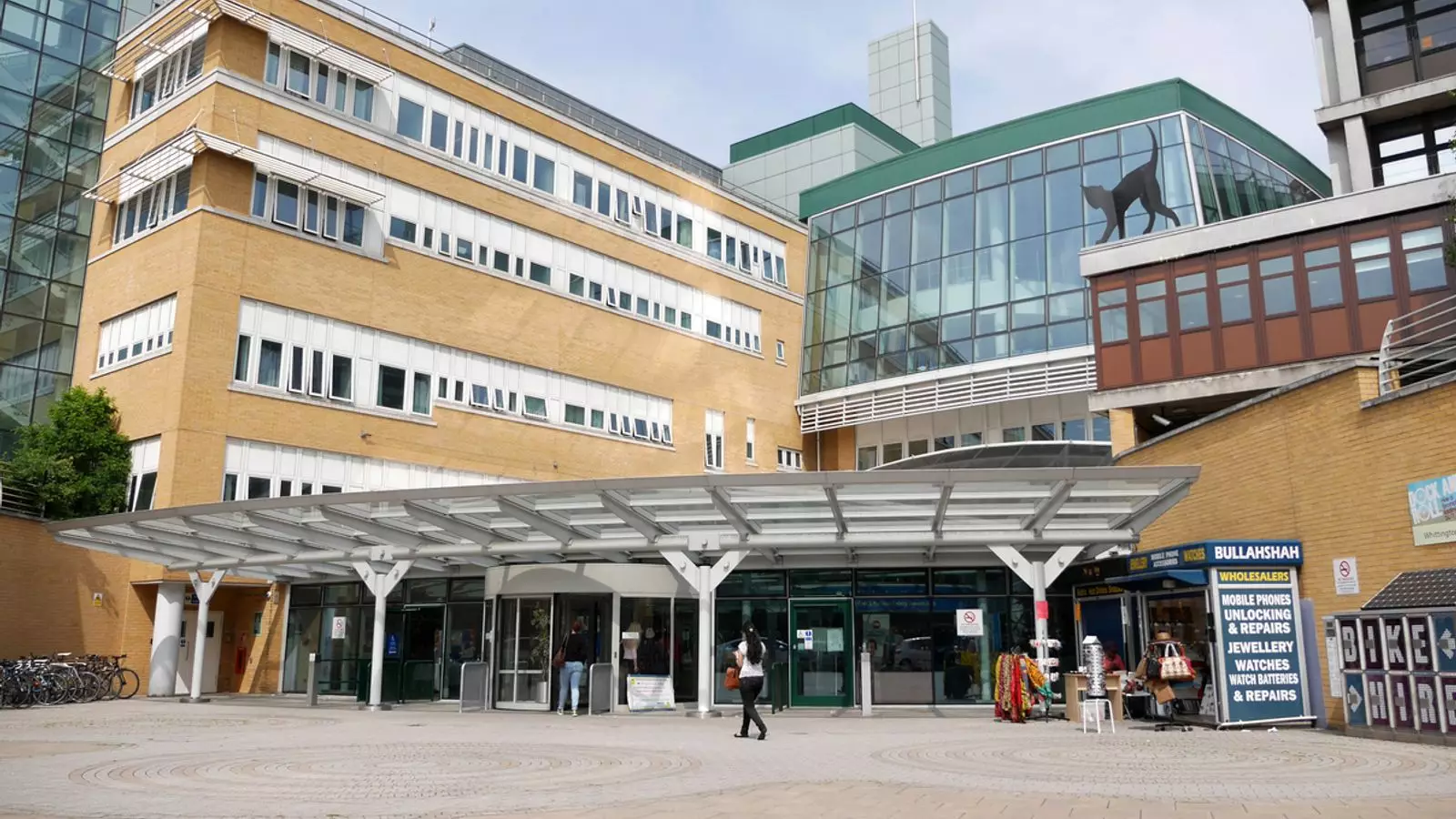The National Health Service (NHS) in the United Kingdom is currently facing unprecedented challenges as it enters what can only be described as a winter crisis. The perfect storm of rising illness, compounded by a so-called “quad-demic” involving flu, COVID-19, norovirus, and respiratory syncytial virus (RSV), has resulted in critical incidents being declared by numerous hospitals. As healthcare facilities struggle to cope with overwhelming demand, innovative yet troubling solutions are emerging, such as the recruitment of corridor nurses at Whittington Hospital in north London.
In recent days, the dire state of emergency care has prompted hospitals across the nation to resort to placing patients in corridors—often seen as an absolute last resort. This alarming trend raises crucial questions about the operational efficacy of the NHS and the quality of patient care in an environment designed to prioritize health and safety.
Amid this chaos, Whittington Hospital has placed advertisements for registered nurses specifically for “corridor care.” This role aims to address the overflow of patients when conventional inpatient rooms become saturated. The term “corridor care” has sparked significant discussion on social media platforms, indicating a growing awareness and concern over these operational adjustments.
The Whittington Health NHS Trust has publicly acknowledged the “significant pressure” it is experiencing, especially in urgent and emergency care. Their communication underscores an unsettling reality: as hospitals grapple with patient surges, they may be forced to expand care beyond traditional settings. This decision exudes a troubling sense of resignation regarding current healthcare capacities.
Health Secretary Wes Streeting’s reflections during a recent Jewish Labour conference further illuminate the human toll of these circumstances. Describing visits to emergency departments, he found the experience highlighted how grave the situation has become—making it clear that even on days deemed “good,” patients were still housed in trolleys in corridors, creating disheartening images of frailty, confusion, and distress among the elderly.
Streeting’s sentiments resonate not only with healthcare providers but also with patients and their families, who too often witness the indignities of corridor care. His resolute stance against normalizing such practices emphasizes that this arrangement, while possibly necessary due to circumstance, undermines the fundamental ethos of patient care.
The Implications for Patient Care
Critics from within the medical community have voiced their apprehensions about the implications of corridor nursing. Dr. Adrian Boyle, president of the Royal College of Emergency Medicine, labeled corridor care as “degrading, dehumanising and dangerous.” His assertion that “it is not possible to provide truly safe patient care” in such environments starkly presents the challenges that healthcare professionals face.
The rising normalization of placing patients in non-traditional care areas must provoke serious reflection among policy-makers, healthcare administrators, and the public alike. As Dr. Ian Higginson noted, nearly every hospital is now treating patients in corridors and even car parks, signaling an alarming departure from what should be the standard of care.
Ultimately, the situation surrounding corridor nursing necessitates a broader conversation about the capacity and future sustainability of the NHS. With healthcare professionals being stretched thinner than ever, it is increasingly evident that immediate interventions cannot solely address a deeper systemic dysfunction affecting healthcare resources.
Addressing the crisis requires collaboration between different levels of government, healthcare providers, and community organizations to innovate solutions that not only alleviate current pressures but also shore up the system against future challenges. The call for change resonates throughout the healthcare landscape; it is essential that society collectively strives for safer and more dignified care settings—whether within the corridors of our hospitals or beyond.
The emergence of corridor nursing reflects a desperate response to an ongoing crisis rather than an acceptable norm within the realm of patient care. As the winter progresses, the NHS must navigate these trials with an eye toward systemic reform to restore a standard of healthcare that is both humane and effective.

Leave a Reply